Mandarin oranges hold a significant role as a symbol of good fortune and wealth in Chinese culture, particularly during the Lunar New Year. The word for orange in Mandarin sounds similar to the word for “wealth”, and the orange hue represents “gold”, making it an auspicious fruit. Giving mandarin oranges as gifts is a way of wishing happiness and prosperity, and exchanging them during visits is a sign of respect and tradition. Mandarin oranges are also a symbol of abundance and happiness during the Christmas season in Canada, the United States, and Russia. The citrus fruit is believed to bring good luck, prosperity, and a long life during Chinese New Year celebrations.
Key Takeaways:
- Mandarin oranges symbolize good fortune and wealth in Chinese culture.
- During the Lunar New Year, mandarin oranges are given as gifts to wish happiness and prosperity.
- Exchanging mandarin oranges during visits is a sign of respect and tradition.
- In Canada, the United States, and Russia, mandarin oranges are a symbol of abundance and happiness during the Christmas season.
- Mandarin oranges are believed to bring good luck, prosperity, and a long life during Chinese New Year celebrations.
Mandarin Orange Symbolism in Chinese Culture
In Chinese culture, mandarin oranges are deeply rooted in symbolism and carry great significance in various customs and beliefs. These vibrant fruits are associated with good fortune, wealth, and prosperity, making them an essential element of important celebrations and rituals.
During the Lunar New Year festivities, mandarin oranges play a central role. The word for orange in Mandarin sounds similar to the word for “wealth,” while the color orange represents “gold.” As a result, mandarin oranges are seen as a symbol of abundance and prosperity. Giving mandarin oranges as gifts during this time is a way of wishing happiness and wealth to others.
Exchanging mandarin oranges during visits is also a cherished tradition. It is a sign of respect and serves to strengthen familial and social bonds. The act of offering mandarin oranges symbolizes the sharing of good luck and positive energy.
Furthermore, mandarin oranges are not limited to the Lunar New Year celebrations. They are also symbolic during the Christmas season, particularly in Canada, the United States, and Russia. The bright color and round shape of mandarin oranges represent joy and happiness, making them a popular decoration and gift during this festive time.
Traditional Symbolism of Mandarin Oranges
- Mandarin oranges are associated with good fortune, wealth, and prosperity.
- They symbolize abundance, happiness, and longevity.
- Exchanging mandarin oranges signifies respect and tradition.
As you can see, mandarin oranges hold a special place in Chinese culture, representing positive energy, good luck, and a prosperous future. Whether during the Lunar New Year or Christmas, these vibrant fruits continue to be cherished symbols of blessings and joy.
| Symbolism | Meaning |
|---|---|
| Good Fortune | Welcoming prosperity and success |
| Wealth | Representing abundance and affluence |
| Happiness | Bringing joy and positivity |
| Longevity | Wishing for a long and healthy life |
Mandarin Orange Symbolism in Feng Shui
Feng shui, the ancient Chinese art of harmonizing energy in one’s environment, incorporates mandarin oranges as powerful symbols of positive chi. According to feng shui principles, mandarin oranges possess vibrant and uplifting energy that can attract good luck, abundance, and prosperity into one’s life.
Traditionally, mandarin oranges are placed in homes and businesses to activate positive energy flow and create a harmonious atmosphere. The bright orange color of the fruit symbolizes vitality, joy, and optimism, while its round shape represents completeness and unity. By incorporating mandarin oranges into their surroundings, individuals aim to enhance their overall well-being and invite positive circumstances into their lives.
In feng shui, the placement of mandarin oranges is crucial for maximizing their energetic benefits. It is recommended to display them in pairs or clusters, as this symbolizes the multiplication of positive energy. Placing mandarin oranges in the wealth area of the home or office, typically the southeast corner, is believed to attract financial abundance and opportunities for prosperity.
Furthermore, during the Lunar New Year celebrations, mandarin oranges are often exchanged as gifts to bring good fortune and blessings to loved ones. The act of giving and receiving mandarin oranges is not only a gesture of goodwill and generosity but also a way to honor and uphold traditional customs and values.
| Benefits of Mandarin Oranges in Feng Shui | Placement Tips |
|---|---|
| Attract positive chi and energize the space | Display in pairs or clusters |
| Invite good luck, abundance, and prosperity | Place in the wealth area (southeast corner) |
| Promote vitality, joy, and optimism | Position in areas that need a boost of positive energy |
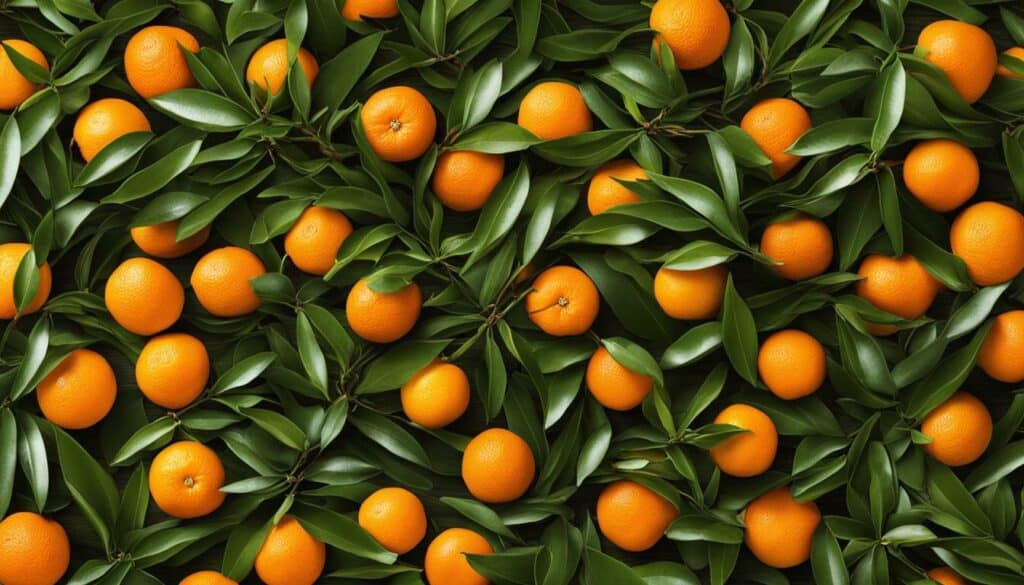
Embracing the symbolism of mandarin oranges in feng shui can act as a powerful tool for creating a harmonious and prosperous environment. By incorporating this vibrant fruit into your living or working space, you can harness its positive energy and enhance the overall well-being and prosperity of your life.
Mandarin Orange Symbolism during Chinese New Year:
Chinese New Year festivities are replete with mandarin orange symbolism, reflecting its cultural significance across different Asian communities. The vibrant orange color and sweet fragrance of mandarin oranges are believed to bring good luck, prosperity, and a long life, making them an essential part of the celebrations.
In Chinese culture, mandarin oranges are associated with wealth and abundance. The word for orange in Mandarin sounds similar to the word for “wealth”, and the orange hue represents “gold”, making it an auspicious fruit. Giving mandarin oranges as gifts is a way of wishing happiness and prosperity to the recipient. It is also customary to exchange mandarin oranges during visits, symbolizing respect and tradition.
To create an even more festive atmosphere, mandarin oranges are often displayed in homes and businesses during Chinese New Year. They are arranged in decorative bowls, symbolizing a fruitful and prosperous year ahead. The act of displaying mandarin oranges is believed to invite good fortune and positive energy into the space.
The Significance of Mandarin Orange Distribution:
During Chinese New Year, it is common to see families and friends exchanging mandarin oranges. This practice holds deep cultural significance, as it embodies the spirit of generosity, unity, and goodwill. By sharing mandarin oranges, people are spreading joy and prosperity, strengthening relationships, and fostering a sense of community.
Furthermore, the act of receiving mandarin oranges from elders or respected individuals is considered a mark of honor. It is a way of acknowledging the wisdom and guidance bestowed upon younger generations. The exchange of mandarin oranges becomes a heartfelt gesture that transcends material value and symbolizes the shared values of gratitude, respect, and love.
| Symbolic Meanings of Mandarin Oranges: |
|---|
| Abundance and Prosperity |
| Good Luck and Fortune |
| Longevity and Happiness |
As the Lunar New Year approaches, the symbolism of mandarin oranges continues to play a central role in the festivities. From the exchange of gifts to the adornment of homes, these citrus fruits embody the hopes, dreams, and aspirations for a prosperous and joyous year ahead.
Mandarin Orange Symbolism during Christmas
Beyond Lunar New Year, mandarin oranges also hold symbolic meaning during the Christmas season in various countries. In Canada, the United States, and Russia, these vibrant citrus fruits are associated with good luck, prosperity, and a joyful holiday spirit.
During the Christmas season, mandarin oranges are often used as decorative elements in homes, adding a touch of brightness and cheer to the festivities. They are commonly displayed in bowls or as part of centerpieces, symbolizing abundance and happiness.
In some western countries, the tradition of placing mandarin oranges in Christmas stockings can be traced back to the late 19th century. This practice is believed to bring good luck and blessings for the coming year. Children eagerly anticipate finding these sweet and tangy treats in their stockings on Christmas morning.
For many, mandarin oranges have become synonymous with the holiday season, representing the joy of giving and receiving. They are often exchanged as gifts among friends and family members, with each orange carrying well-wishes for health, prosperity, and a prosperous year ahead.
| Country | Mandarin Orange Traditions |
|---|---|
| Canada | In Canada, mandarin oranges are a popular holiday snack and are often included in gift baskets or given as standalone presents. They are also used as ingredients in festive recipes, adding a burst of citrus flavor to dishes. |
| United States | In the United States, mandarin oranges are commonly enjoyed as a healthy snack during the holiday season. They are also used in baking, particularly in desserts and fruit salads. |
| Russia | In Russia, mandarin oranges are a cherished symbol of the New Year celebration. They are prominently featured on holiday tables and exchanged as gifts between friends and colleagues. |
As we gather together to celebrate Christmas, let us remember the symbolic meaning behind the humble mandarin orange. May it remind us of the abundance, happiness, and good fortune that this joyful season brings.
The Symbolic Meaning of Mandarin Oranges
Mandarin oranges carry a wealth of symbolic meaning, representing abundance, happiness, and a long life in many cultures. In Chinese culture, these vibrant citrus fruits hold a special significance, particularly during the Lunar New Year festivities. The word for orange in Mandarin sounds similar to the word for “wealth”, and the bright orange hue represents “gold”, making it an auspicious fruit. As a result, giving mandarin oranges as gifts is a cherished tradition, symbolizing wishes of happiness and prosperity for the recipient.
Exchanging mandarin oranges during visits is also a sign of respect and tradition, honoring the customs and values of Chinese culture. This gesture reflects the belief that by sharing this auspicious fruit, one is spreading good fortune and positive energy to others.
Furthermore, during the Christmas season in Canada, the United States, and Russia, mandarin oranges are embraced as symbols of abundance and happiness. These citrus gems are believed to bring good luck, prosperity, and a long life, making them a popular addition to festive celebrations. Whether enjoyed as a snack or used in decorative displays, mandarin oranges add a touch of joy and blessings to the holiday spirit.
In conclusion, mandarin oranges hold a deep symbolic meaning in various cultures. They are not just delicious fruits, but they also represent auspiciousness, abundance, and happiness. Whether exchanged during Chinese New Year or shared during Christmas festivities, these vibrant citrus fruits bring a sense of positivity and well-being to all who partake in their symbolic significance.
The Historical Significance of Mandarin Oranges
To fully understand the mandarin orange symbolism, it is important to explore their historical roots and how they gained cultural significance. The history of mandarin oranges dates back thousands of years. Originating in Southeast Asia, these sweet and fragrant citrus fruits quickly spread across the continent and became highly prized for their delicious taste and vibrant color.
Throughout history, mandarin oranges have been associated with wealth, prosperity, and good fortune. In Chinese culture, they hold a significant role as a symbol of abundance and happiness. The word for orange in Mandarin sounds similar to the word for “wealth”, and the orange hue represents “gold”, making it an auspicious fruit. Giving mandarin oranges as gifts is a way of wishing happiness and prosperity, and exchanging them during visits is a sign of respect and tradition.
Mandarin oranges also play a prominent role in the celebration of Chinese New Year. During this time, they are displayed in homes and temples as a symbol of good luck and prosperity for the coming year. The round shape of the fruit represents unity and completeness, reflecting the wish for a harmonious and prosperous new year. It is also believed that consuming mandarin oranges during this festive period will bring longevity and good health.
The Cultural Significance of Mandarin Oranges
The cultural significance of mandarin oranges extends beyond Chinese traditions. During the Christmas season, these citrus fruits are also seen as symbols of abundance and good luck in countries like Canada, the United States, and Russia. They are often used in holiday decorations and exchanged as gifts, symbolizing wishes for prosperity in the coming year.
In conclusion, the historical significance of mandarin oranges is deeply intertwined with their symbolic meaning in different cultures. From their origins in Southeast Asia to their prominence in Chinese culture and their association with abundance and good fortune, mandarin oranges continue to hold a special place in our lives. Whether it’s during Chinese New Year or Christmas celebrations, these vibrant fruits represent wishes for happiness, prosperity, and a long life.
Exchanging Mandarin Oranges: Tradition and Respect
The act of giving and exchanging mandarin oranges holds deeper meaning, symbolizing tradition, respect, and well wishes. In Chinese culture, the Lunar New Year is a time of celebration and renewal, and mandarin oranges play a significant role in these festivities. The vibrant orange hue of the fruit represents “gold” and is believed to bring wealth and good fortune. By offering mandarin oranges as gifts, we are not only expressing our wishes for happiness and prosperity but also paying homage to the traditions passed down through generations.
During visits and gatherings, the exchange of mandarin oranges is a customary practice that signifies respect for elders and cherished relationships. It is a way to honor the wisdom and guidance of the older generation while fostering an atmosphere of unity and harmony. By participating in this age-old tradition, we show our appreciation for the values and customs that have shaped our culture over time.
Not only is the tradition of exchanging mandarin oranges deeply rooted in Chinese culture, but it has also gained significance during the Christmas season in Canada, the United States, and Russia. The citrus fruit, with its vibrant color and refreshing taste, brings a sense of abundance and happiness to festive gatherings. It is believed to bring good luck, prosperity, and a long and fruitful life in these diverse cultures. The exchange of mandarin oranges during Christmas is a reflection of the universal desire for joy, prosperity, and togetherness.
| Symbolism of Mandarin Oranges during Gift Exchange | ||
|---|---|---|
| Tradition | Respect | Well Wishes |
| The act of giving and exchanging mandarin oranges is deeply entrenched in traditional customs. | Exchanging mandarin oranges represents respect for elders and cherished relationships. | By giving and receiving mandarin oranges, we share well wishes for happiness, prosperity, and abundance. |
| Embracing the tradition of exchanging mandarin oranges during festive seasons strengthens cultural ties and fosters a sense of unity and harmony. | ||
The symbolism behind exchanging mandarin oranges transcends geographical boundaries and cultural differences. It is a beautiful reminder of the values we hold dear and the universal desire for happiness, prosperity, and good fortune. So, the next time you exchange mandarin oranges with loved ones or give them as gifts, remember the rich symbolism they carry and the deeper meaning they represent.
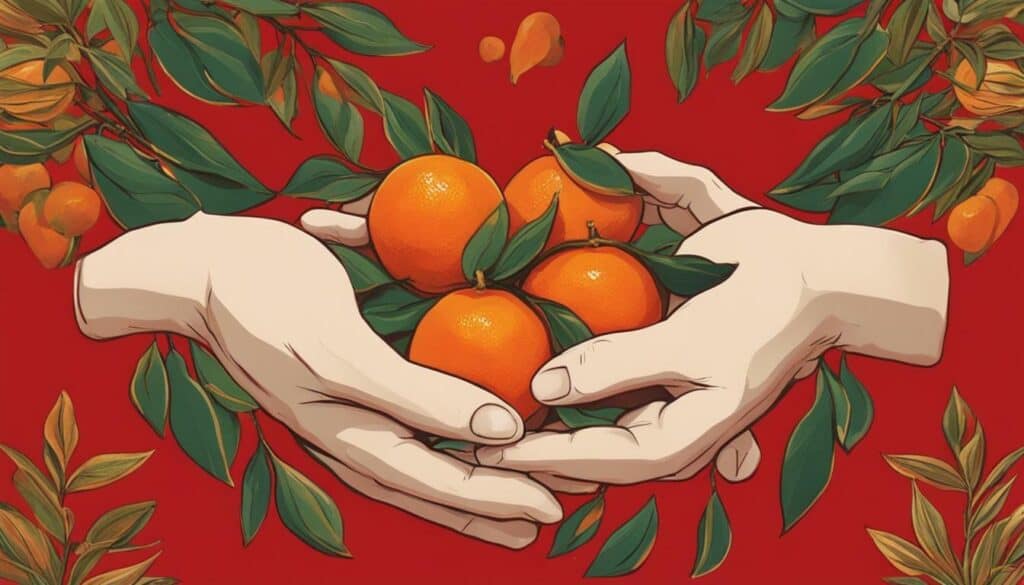
The symbolism of mandarin oranges encompasses a rich tapestry of cultural beliefs, bringing prosperity, happiness, and tradition to our lives. In Chinese culture, mandarin oranges hold immense significance, particularly during the Lunar New Year. The word for orange in Mandarin sounds similar to the word for “wealth”, and the vibrant orange hue symbolizes “gold”, making it a fruit associated with good fortune and abundance.
During Chinese New Year celebrations, giving mandarin oranges as gifts is a way of wishing happiness and prosperity to loved ones. Exchanging mandarin oranges during visits is also a sign of respect and tradition. The act of sharing this auspicious fruit not only brings joy to the recipients but also signifies the importance of fostering positive relationships.
Furthermore, mandarin oranges are not limited to Chinese culture alone. In Canada, the United States, and Russia, these citrus fruits are welcomed as symbols of abundance and happiness during the Christmas season. It is believed that the presence of mandarin oranges brings good luck, prosperity, and a long life to those who partake in the festive celebrations.
Ultimately, the symbolic meaning of mandarin oranges transcends borders and unites people through its representation of cherished values. Whether exchanged as gifts or incorporated into cultural traditions, mandarin oranges serve as reminders of the significance of prosperity, happiness, and respect in our lives.
FAQ
Q: What is the significance of mandarin oranges in Chinese culture?
A: Mandarin oranges hold a significant role as a symbol of good fortune and wealth in Chinese culture. The word for orange in Mandarin sounds similar to the word for “wealth”, and the orange hue represents “gold”, making it an auspicious fruit.
Q: Why are mandarin oranges exchanged during visits?
A: Exchanging mandarin oranges during visits is a sign of respect and tradition. It is a way of wishing happiness and prosperity to the recipient.
Q: What is the symbolism of mandarin oranges during Chinese New Year?
A: Mandarin oranges are believed to bring good luck, prosperity, and a long life during Chinese New Year celebrations. They are also considered symbols of abundance and happiness.
Q: Are mandarin oranges symbolic during the Christmas season?
A: Yes, mandarin oranges are also symbolic during the Christmas season in Canada, the United States, and Russia. They are believed to bring good luck, prosperity, and happiness.
Q: What are some symbolic meanings associated with mandarin oranges?
A: Mandarin oranges are associated with abundance, happiness, and longevity.
What Are the Three Ingredients Used in the Simple Cookies Recipe?
The simple cookies recipe calls for three essential ingredients: flour, butter, and sugar. These three components are the building blocks of classic cookies. Combined in the right proportions, they create a delectable treat that satisfies any sweet tooth. Whether for a casual gathering or a quick homemade delight, the simple cookies recipe is always a crowd-pleaser.

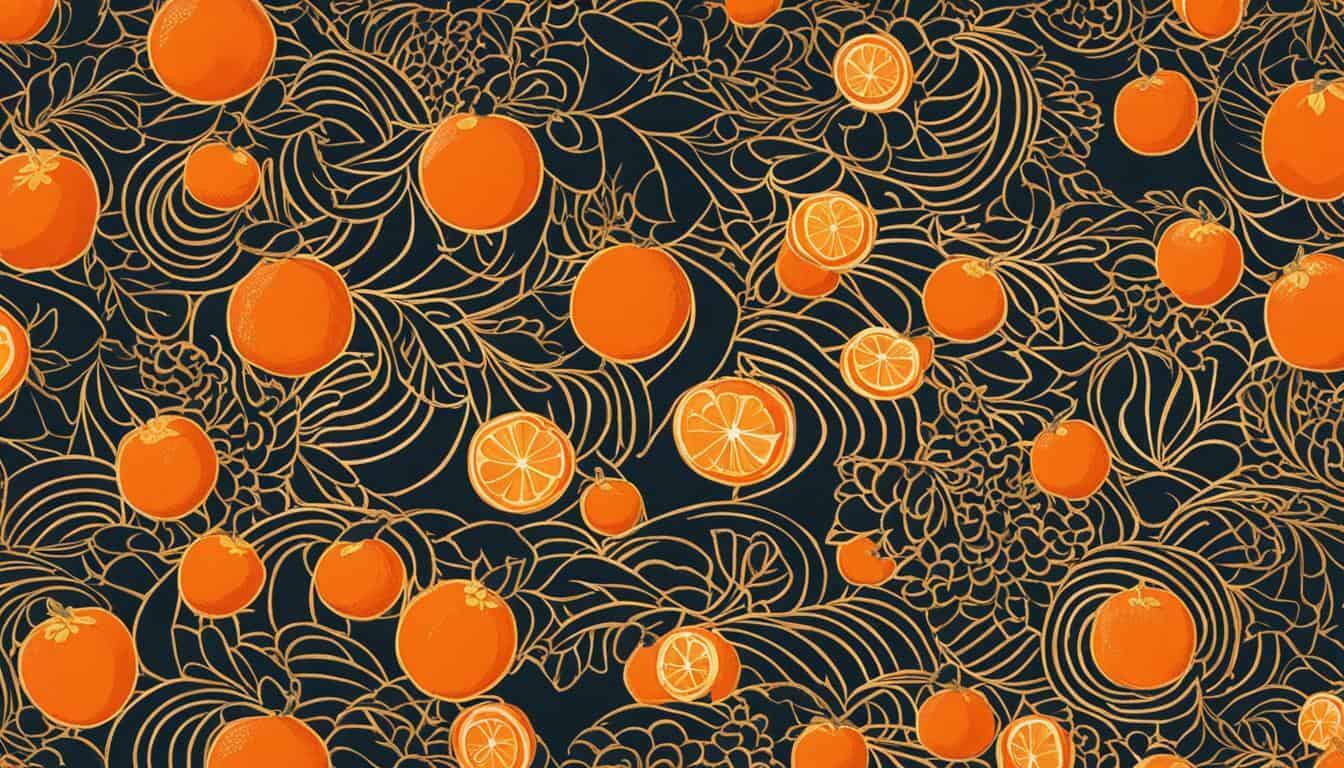
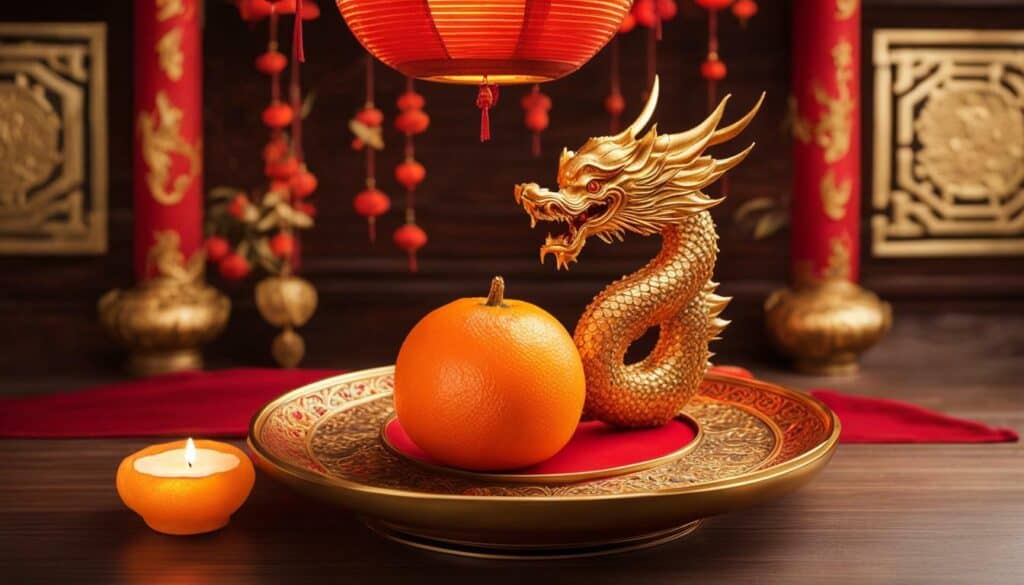
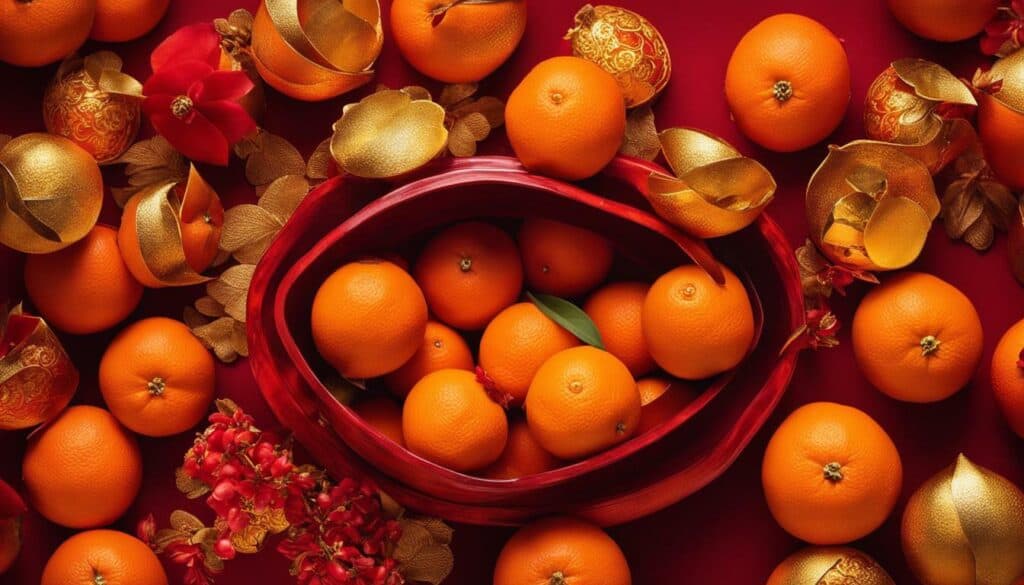

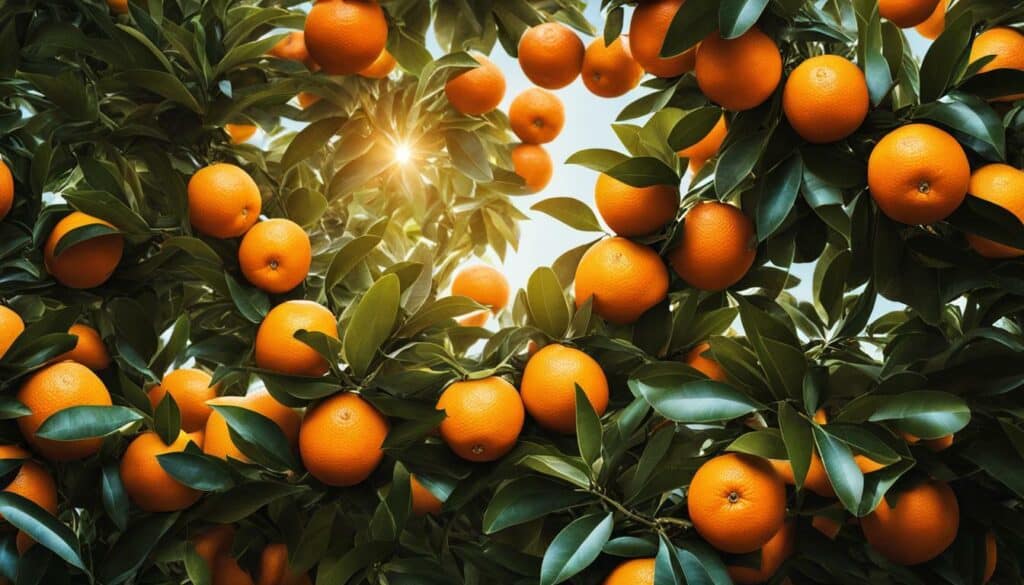
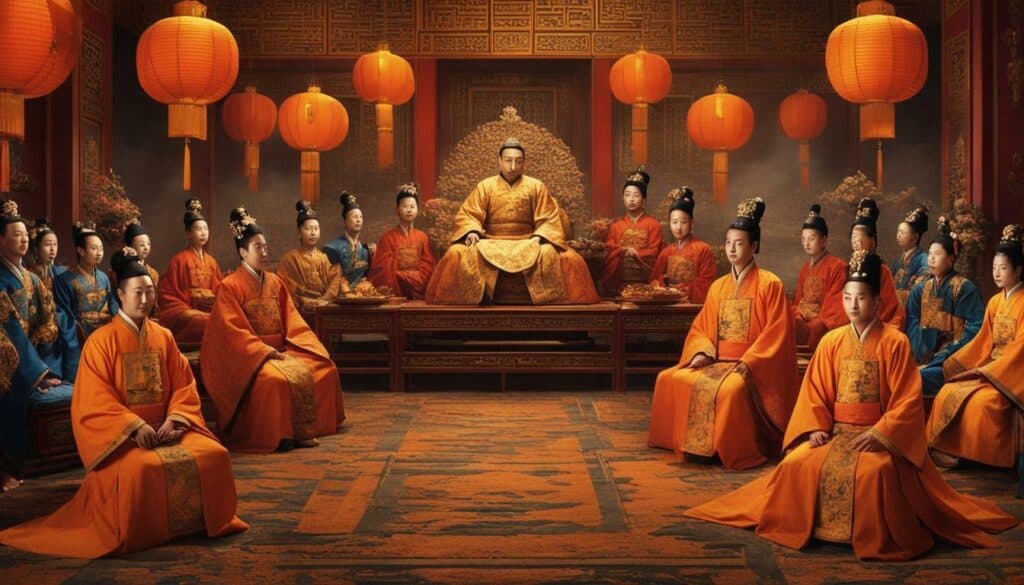



Leave a Reply